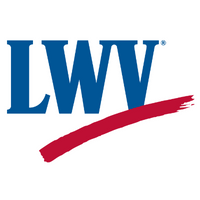Governmental Authorities
Position in Brief
Support measures to ensure that governmental authorities act in the public interest, that the powers of authorities are clearly defined, and that authorities are established only when the authority structure enhances the ability to provide a public service.
Background
Governmental authorities are frequently involved in providing infrastructure needs of communities, as well as other facilities and services. The LWVPA consensus position was reached in 1987 after a two-year study during which Leagues surveyed their local authorities for the functions they perform, their funding, whether they are operating or leasing authorities, and their ethical and management practices.
This position is for use primarily at the local government level. LWVPA monitors relevant state legislation and can provide information and assistance to Leagues who wish to support or oppose the formation or operation of governmental authorities in their areas.
The main problem with authorities is lack of oversight. The chain of command on this matter is a problem since the Public Utilities Commission looks over some authorities but others are on their own. Authorities such as water and sewer providers usually are run fairly well. The problems are with others such as industrial development and parking authorities whose charter is too often non-specific. Any new authority needs close attention by the public.
Updated February 2012
Position in Detail
Use of Authorities
LWVPA believes:
Authorities should not be formed solely for the purpose of funding projects and services.
Authority structure is appropriate, though not necessarily preferred, to provide for continuity of service or administration, to separate the project from political pressures, and/or to enhance efficiency.
Authority structure is preferred for regional facilities or services.
Management and Controls
In order to protect the public interest, LWVPA believes:
The scope and responsibility of the authority should be clearly defined.
Authority board members should be representative of the range of community interests, including the consumer, without reference to political party affiliation.
Authority board members should be required to have periodic training.
Authority projects should conform to municipal and/or regional comprehensive plans.
Public hearings should be held on authority projects.
Authorities should be required to institute a system of internal fiscal and management controls.
A consumer advocate should be available at the state or local level.
The Public Utilities Commission should have oversight for utility authorities.
A referendum should not be required for:
The formation of an authority.
Expansion of the purpose or domain of an authority.
Bond issues of an authority.
Ethics
The League believes near relatives of board members should not benefit financially from the authority. Solicitors for authorities should be subject to a code of ethics which assures that they and their law firms:
Avoid any conflict of interest or appearance of impropriety.
Do not represent persons appearing before the authority.
Do not represent the parent municipality(ies) creating the authority.
Oversight
Financial reports, long-range plans, and management and performance audits should be made available by the authority to the general public, the creating municipality(ies), the grant-making agency where applicable, and the state.

